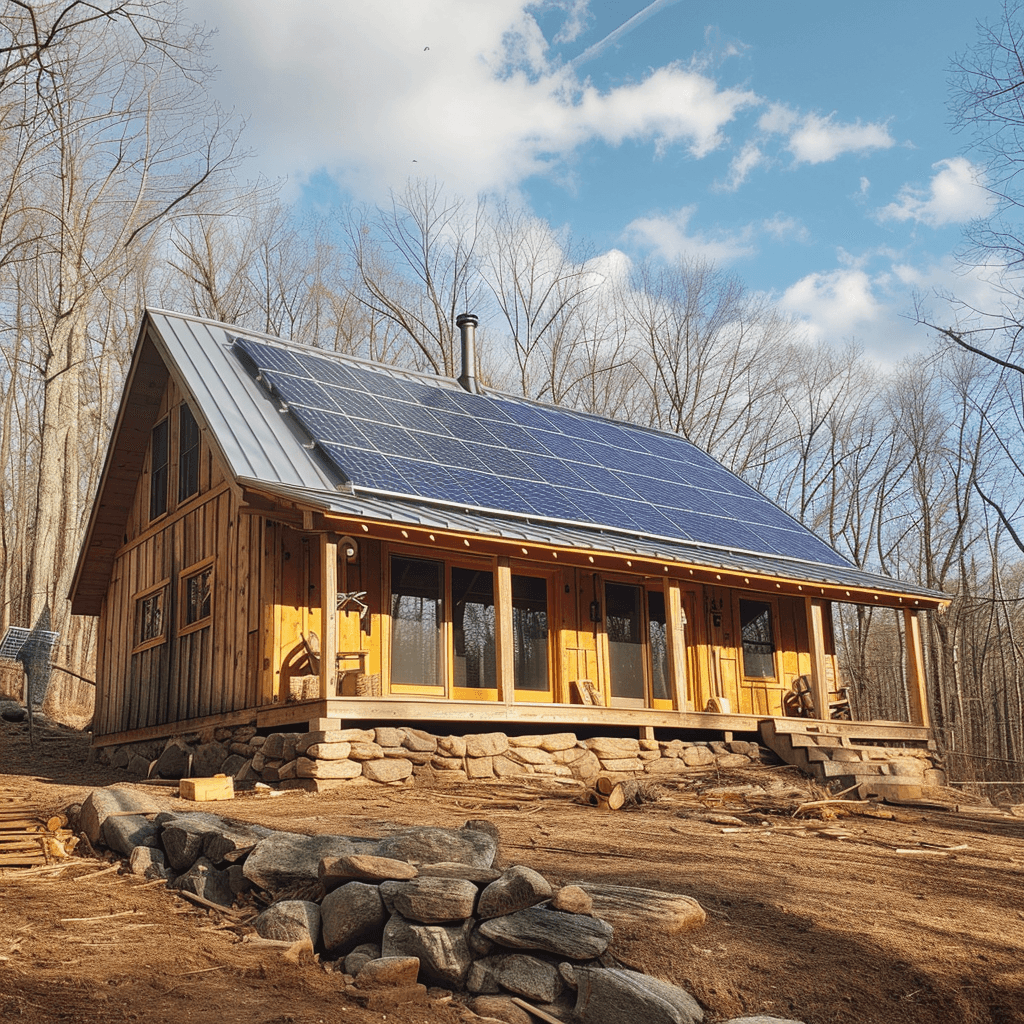So, you’re thinking about going off-grid, huh? Well, that’s a big decision, and it can definitely be an exciting and rewarding lifestyle. But before you dive into it headfirst, there are a few things you need to consider. One of the most important questions you’ll need to answer is how many kilowatts (kW) you’ll need to power your off-grid life. And don’t worry, I’ve got all the information you need right here in this article “How many kw do I need to go off-grid?”.
Determining the required kW for off-grid living is not as simple as just picking a number out of thin air. It actually depends on a variety of factors, such as the size of your home or cabin, the number of appliances and electronics you plan to use, and your overall energy consumption habits. To get a more accurate estimate, it’s a good idea to do an energy audit of your current lifestyle. Keep track of how many kilowatt-hours (kWh) you use on a daily, weekly, or monthly basis.
Once you have a rough estimate of your energy consumption, you can use that information to determine how many kW you’ll need to go off-grid. Typically, a small off-grid system can range from 1-3 kW, while a larger system for a more energy-intensive lifestyle can require anywhere from 3-10 kW or more. Of course, these numbers are just a general guideline, and you might need to adjust them based on your specific needs and circumstances. But don’t worry, I’ll delve deeper into this topic in the rest of the article to help you figure out the exact kW requirements for your off-grid adventure. Stay tuned!
Understanding the concept of living off grid
Living off grid refers to a lifestyle or way of living that is dependent on self-sufficiency and autonomy, where individuals or households rely on their own resources rather than being connected to public utilities like electricity, water, or gas. In this setup, individuals generate their own energy, collect and store water, and manage waste disposal without any external support.
Living off grid has gained popularity in recent years due to several reasons. Some people choose this lifestyle as a way to reduce their carbon footprint and live a more sustainable and environmentally friendly life. Others opt for off-grid living as a means to gain independence from traditional utility companies or to live a more economical life by reducing monthly expenses.
Advantages of living off grid
Living off grid has its fair share of advantages. One of the main benefits is the freedom and independence it provides. By generating your own energy, you are not subject to power outages or fluctuations in the energy grid. You have ultimate control over your energy supply and can tailor it to meet your specific needs.
Another advantage is the potential cost savings. By producing your own electricity, you can eliminate or significantly reduce monthly utility bills. The initial setup cost for an off-grid system may be higher, but in the long run, you can save a substantial amount of money.
Off-grid living also encourages self-sufficiency and sustainability. It promotes a more conscious and responsible approach towards energy consumption. By relying on renewable energy sources like solar or wind power, you are reducing your reliance on fossil fuels and minimizing your carbon footprint.

Challenges faced while living off grid
While living off grid can be rewarding, it also has its fair share of challenges. One of the main challenges is the initial investment required to set up an off-grid system. The cost of solar panels, wind turbines, batteries, and other equipment can be significant, and it may take time to recoup the investment through savings on energy bills.
Another challenge is the need for regular maintenance and monitoring of the system. Off-grid systems require constant attention to ensure that they are operating efficiently. This includes periodic cleaning of solar panels, monitoring battery levels, and troubleshooting any issues that may arise.
Additionally, off-grid living requires a certain level of adaptability and resourcefulness. You need to be prepared for fluctuations in energy production due to weather conditions or seasonal variations. You may also need to adjust your energy usage habits to align with your system’s capabilities.
Skills and preparations required for off-grid living
Before embarking on off-grid living, it is important to acquire the necessary skills and make appropriate preparations. Understanding basic electrical concepts and having some knowledge of renewable energy sources is essential. It is also important to familiarize yourself with the specific requirements and limitations of the climate and terrain in which you will be living.
Preparing for off-grid living also involves conducting a thorough energy audit of your current lifestyle. This includes identifying the energy-consuming devices you use and evaluating their energy efficiency. By reducing your overall energy consumption, you can minimize the size and complexity of your off-grid system.
Developing practical skills such as gardening, composting, and water conservation techniques can also be beneficial in achieving self-sufficiency. Learning about alternative heating and cooling methods, as well as waste management techniques, can further enhance your off-grid lifestyle.
In conclusion, determining the required kW for off-grid living is a crucial step towards achieving self-sufficiency and sustainability. It requires a thorough understanding of your energy needs, the efficiency of renewable energy systems, and the integration of various renewable energy sources. By accurately determining your kW requirements and implementing an efficient off-grid system, you can enjoy the advantages of living off grid while minimizing the challenges associated with it. With careful planning, skills development, and regular monitoring, you can create an off-grid lifestyle that is both sustainable and rewarding.




